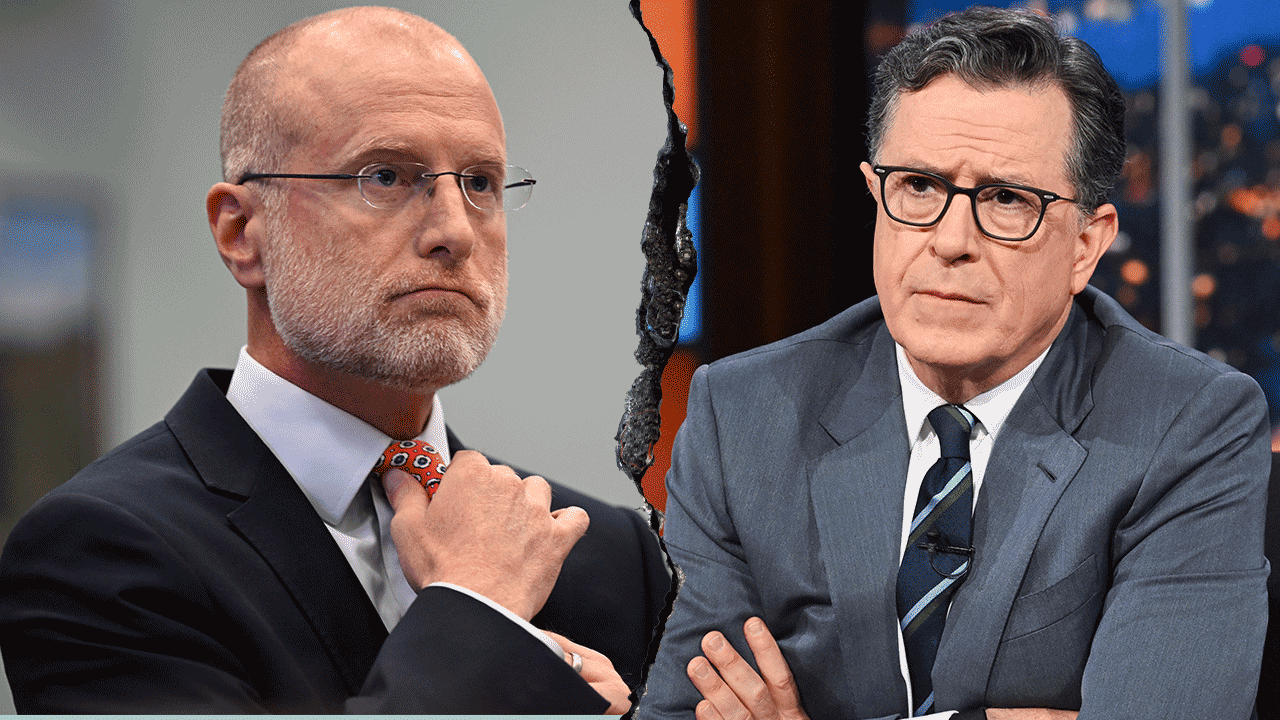Media top headlines June 15
The New York Times admitting The Babylon Bee is satire, not ‘misinformation’ in a correction, the media ignoring Biden’s attack on GOP while abroad, despite criticizing Trump for violating political norm and ABC’s Terry Moran getting panned for suggesting GOP would end the filibuster ‘in a heartbeat’ round out today’s top media headlines
Washington Post columnist Paul Waldman knocked comedian Jon Stewart for making an impassioned argument in favor of the Wuhan lab-leak theory during his Monday night appearance on "The Late Show."
Stewart shocked Stephen Colbert's audience when he suggested it isn't far-fetched to believe that the coronavirus pandemic originated from a Chinese coronavirus lab, comparing it to an "outbreak of chocolaty goodness near Hershey, Pennsylvania."
"Maybe a steam shovel mated with a cocoa bean… or it's the f---in chocolate factory!" Stewart exclaimed.
That didn't sit well with Waldman, who penned a piece on Tuesday titled, "Jon Stewart’s rant is a reminder: Don’t rely on celebrities for covid-19 theories."
"It seems like a long time ago now, but Jon Stewart used to be an immensely important figure sitting at the place where politics and pop culture meet," Waldman began his op-ed about the former "Daily Show" host. "But these days, he’s retired and only emerges from time to time, and because he always delighted more in skewering Republicans, it was a bit shocking to see him go on an extended rant on ‘The Late Show with Stephen Colbert’ about the coronavirus lab-leak theory."
Waldman claimed that the lab-leak theory "has become associated with conservatives trying to prove that former president Donald Trump was right about everything" and knocked the liberal comedian for suggesting "it’s the only plausible explanation for the source of the virus."
"This provides an important lesson about celebrities: You shouldn’t get your political opinions from them, or your scientific opinions either," Waldman wrote. "I know what you’re going to say: ‘That’s just because this time a liberal celebrity is taking a position you don’t like!’ But it’s not that. On the lab leak question, I’m agnostic. Might that be where the virus came from? Sure. Or maybe not. But it matters only for the historical record and questions like ‘What should international virology lab safety standards require?’ As a political question, it’s pretty much irrelevant."
The Post columnist argued that nothing changed when then-President Trump first pushed the lab-leak theory last year and that while Stewart has the "right" to say what he wants, "his attack on expertise reminds us why expertise is so important."
CBS ADMITS COVID LAB-LEAK THEORY DEVELOPMENTS ARE ‘VINDICATION OF SORTS FOR TRUMP-ERA OFFICIALS’
"That’s not to say that experts don’t often have biases or blind spots, because they do. Sometimes, they can be catastrophic. But it’s not because experts can’t be trusted, it’s because something kept them from seeing what they should have, or — perhaps more often — they just didn’t have enough information to arrive at the best judgment," Waldman defended so-called 'experts" of the pandemic. "Celebrities, on the other hand, often find millions of people taking their ideas on things they know no more about than the average person all too seriously."
"It feels good when a celebrity you admire agrees with you, and it feels bad when the same person has values that differ from yours… But they’re not experts, and the reason we listen to experts is that they know more than we do," Waldman continued. "And if they know more about some things than others, then we have to understand where we shouldn’t listen to them and where the limits of their knowledge are."
The Washington Post infamously declared in a headline back in February 2020, "Tom Cotton keeps repeating a coronavirus conspiracy theory that was already debunked."
CLICK HERE TO GET THE FOX NEWS APP
Fifteen months later, the Post issued a "correction" following recent developments that helped legitimize the China lab origins.
"Earlier versions of this story and its headline inaccurately characterized comments by Sen. Tom Cotton (R-Ark.) regarding the origins of the coronavirus," the correction read at the top of the report. "The term 'debunked' and The Post’s use of ‘conspiracy theory’ have been removed because, then as now, there was no determination about the origins of the virus."










































